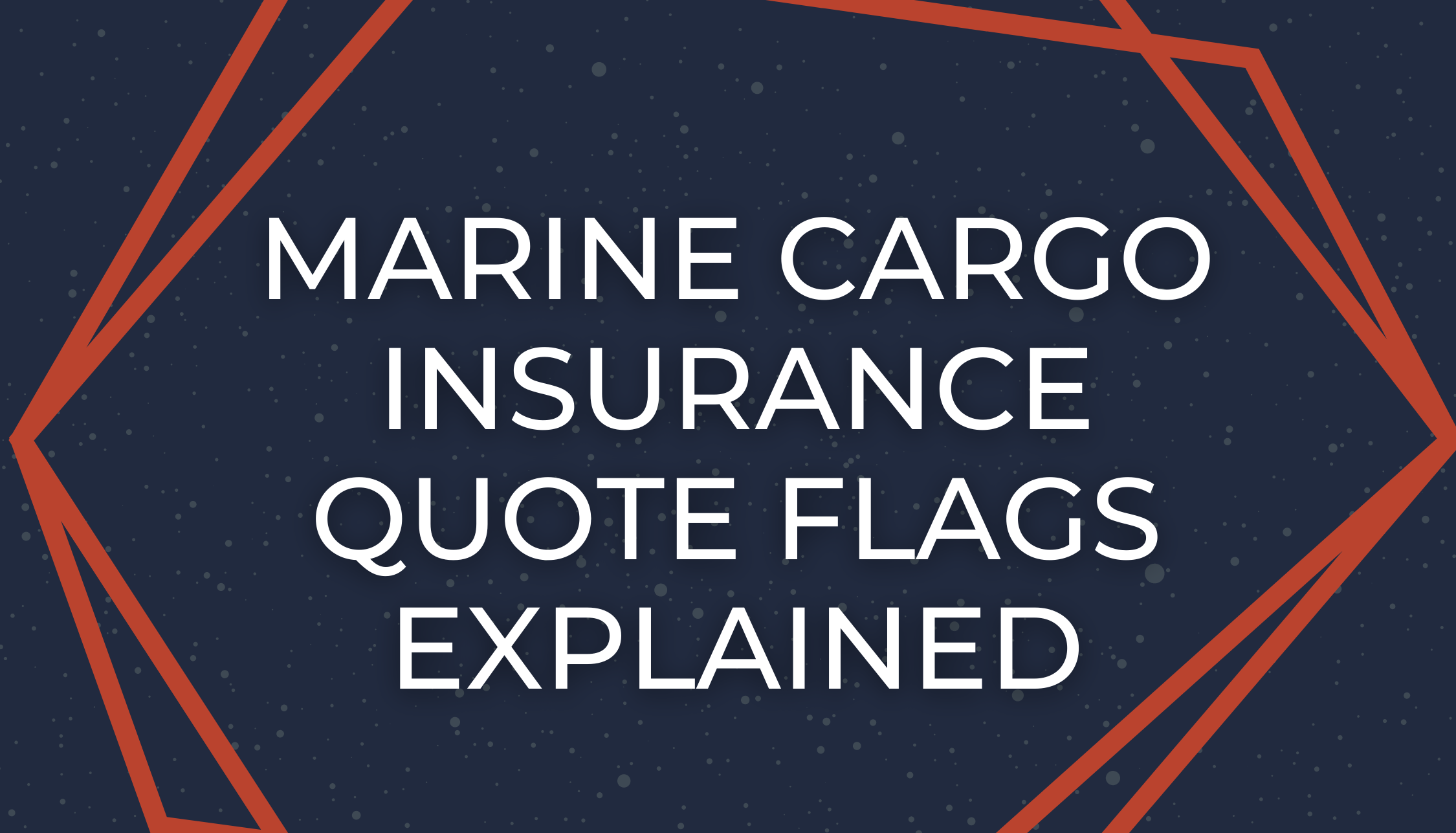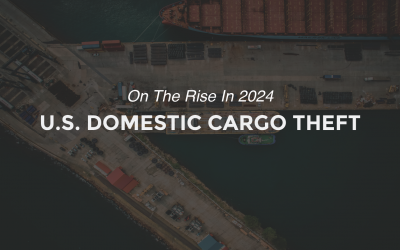When you apply for a marine cargo insurance policy, the insurer will bring any aspects of your business that could require unique coverages or conditions to your explicit attention before finalizing the policy.
What is a Quote Flag?
When you apply for a Marine Cargo Insurance (MCI) policy, insurers will often research and note any critical information about your business outside of the norm and discuss it with you, so you’re aware of any exclusions or additional terms of coverage on your policy. Quote flags ensure the discussion of any housekeeping business that should be handled before an MCI policy is finalized.
Quote flags help make certain that the shipper understands and acknowledges any relevant issues pertaining to their policy. Quote flags ensure transparency, educate shippers on their coverage, and helps verify that shippers have the appropriate coverage for their business.
Reasons to Apply Exclusions
A quote flag can often lead to the discussion of exclusions that apply to your policy. Exclusions specifically state what insurers will not cover. Some exclusions are negotiable, and some are not.
There are various reasons for exclusions. Exclusions are applied in order to:
Eliminate coverage for an uninsurable loss exposure
There are situations where it is unlawful or impossible to cover a shipment. For example, Argentinian law prohibits insurers from insuring cargo to or from Argentina, so insurers must exclude cargo insurance coverage on those shipments.
Remove ambiguity of coverage
There are exclusions to an insurance policy that can be pretty ambiguous, so insurers will discuss specific claims that aren’t covered with the shipper. Shippers may not realize specific exclusions when binding a policy, so insurers usually bring instances to their attention.
For example, there is a common exclusion of claims due to rust, oxidization, and discoloration. This is considered inherent vice by insurers, which is often excluded from MCI policies.
Manage moral and morale hazards
For example, the choice to take action, or inaction, to make a loss more likely or an attitude of carelessness about preventing a loss can be a problem with some commodities. Acts of negligence by the insured are likely not to be covered.
Keep premium reasonable
For example, insurers often won’t explicitly cover instances of chipping or cracking because other terms in the policy could cover it. Sometimes, insurers don’t want to insure specific exposures that could, in theory, be covered to lower the premium for the shipper.
Terms of Coverage
The insurer may call out particular coverage or terms that they are not willing to offer or accept. In these instances, the insurer will usually be transparent and share their reasoning for rejecting any terms.
For example, an insurer may reject a deductible that is either too high or too low. Insurers have declined to provide a 250 dollar deductible due to the fragile nature of the commodity.
Common Quote Flags
Warranty
A warranty is a coverage condition implying that the shipper has given a guaranty that something will or will not be done either at inception or throughout a policy period.
A warranty requires this guaranty to be upheld, and failure to comply with all parts of a warranty typically voids coverage.
An example of a coverage condition is that the shipper must guarantee all ocean shipments are in full and sole use shipping containers throughout the insured voyage.
Subjectivity
A subjectivity is a noted outstanding issue or question which must be resolved to the insurer’s satisfaction before coverage can be upheld.
Conditions Precedent
A conditions precedent is an obligation the shipper must meet before insurers are obligated to perform under the contract.
This is different from a warranty because coverage does not attach until the condition precedent is met, while a warranty breach removes coverage.
A condition precedent supersedes other policy languages if there is a contradiction.







